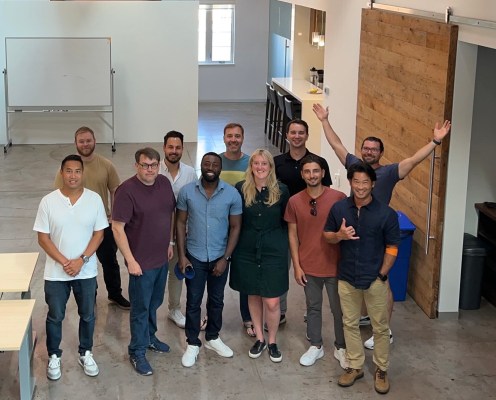Ron Williams, co-founder and CEO of Kindo, knows a thing or two about cybersecurity, having previously led security teams at League of Legends developer Riot Games, shared scooter startup Bird and Alphabet-backed Clover Health. He is now bringing this expertise to the fast-moving world of artificial intelligence (AI) with Kindo, his new AI productivity and security startup
While there’s no shortage of AI startups, Kindo claims to be doing things differently. The platform — co-created by former Google engineer Bryan Vann and former OpenAI employee Margaret Jennings — claims to be the first self-serve AI platform with back-end integration built explicitly for enterprises.
“We saw that a big AI wave was ready to come,” Williams told TechCrunch. “Every time any one of those waves come in — be it smartphones or SaaS — I’ve had to wait a year or two for the right tool to come along to myself and my team to manage the new applications that come along with that wave.”
Kindo, formerly known as “Usable Machines,” aims to solve that problem by delivering enterprise-ready generative AI security, compliance and centralized management, enabling businesses to leverage AI securely and privately.
The platform enables businesses to connect to any private, open source or commercial AI model, be it ChatGPT or Google Bard, and supports more than 200 SaaS integrations that employees can leverage to create no-code, AI-powered workflows. Kindo does all of this while providing security teams with a back end that enables complete visibility and control over the use of AI within their organization, making it easier for businesses to control who has access to data through PII, content and data filters. “It allows you to work within GDPR frameworks,” Williams said. “One of our key features is you can filter PII before the AI model sees it.”
Additionally, the platform offers centralized governance of employee access and permissions, audit logs, usage tracking and analytics for all AI prompts, data and workflows.
Despite offering a bunch of tools aimed at enterprise developers and security teams, this isn’t Kindo’s target market. Rather, Williams tells TechCrunch that Kindo is targeting the functional end user who wants to be able to use the power of AI. “There’s a whole bunch of startups that are building tools for developers, but they’re not building tools that let someone in marketing grab all this power and start building cool things with it,” Williams said. With Kindo AI, end users can automate tasks such as Zoom video transcription, writing press releases and generating performance reviews.

Image Credits: Kindo
“The sweet spot customer for us is mid-market size,” Williams said. “We can sell into enterprises — and we’re talking to these really large companies — but we’re great for companies that don’t have big investments in data science.”
Kindo, which Williams started in August last year, has already caught the attention of investors. The company raised $7 million in seed funding in June, a round led by Riot Ventures, with participation from Eniac Ventures and RRE Ventures. Other notable investors include Marlinspike Partners, Flexcap Ventures, New Era Ventures, Andrew Peterson (founder of Signal Sciences), and Dave Politis (founder of BetterCloud).
